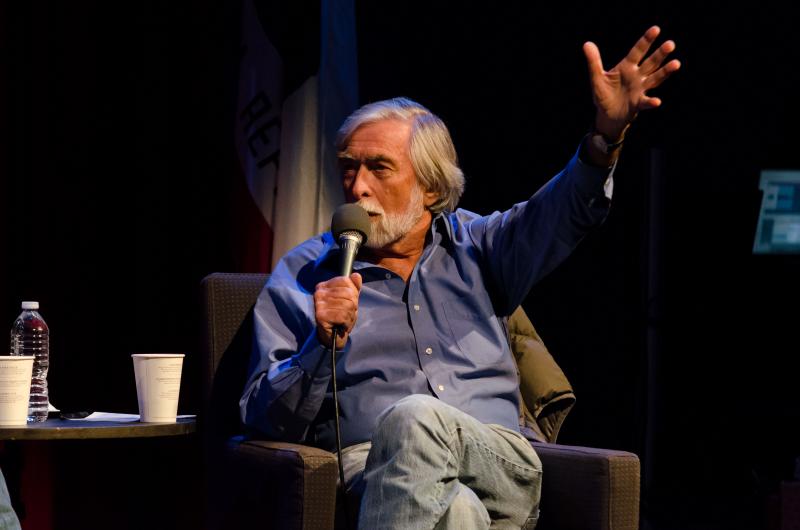The Death of Privacy

On October 10, three experts in journalism came together to discuss whether or not the First Amendment applied to government secrets in Pasadena.
Joel Bellman, a member of the Society of Professional Journalists moderated the panel, called Beyond Snowden in the Crawford Family Forum, which included USC Professor Robert Scheer, CSUN Professor Elizabeth Martinez and Frank Snepp.
“Privacy is dead as we know it,” claimed Snepp, a former CIA agent turned whistleblower.
Snepp opened up the discussion by talking about Edward Snowden’s leaks regarding National Security Agency surveillance on US citizens. He took a different approach in addressing how Snowden could get charged by the government for leaking classified information. Instead of focusing on the Espionage Act, Snepp discussed how Snowden could be charged for stealing government property in the form of secret information.
If the government prosecutes Snowden for stealing government secrets, the people who helped him get the information out are liable as well, according to Snepp. This means journalists like Glenn Greenwald, who first reported on leaked documents detailling that the National Security Agency collects records of Verizon customers, can get sued by the government. Snepp said he faced similar problems after he revealed how the CIA left behind thousands of Vietnamese allies in his book, Decent Interval. The government almost sued his publisher but stopped short because it would have created a bad public image.
This is the strategy that big businesses and government are using nowadays to “shut up” journalists nowadays, Snepp claims. And he says it’s working.
Martinez continued with the government’s use of “national security” as an exception to the First Amendment. She believes that the use of this excuse does not always make sense. Many citizens are complacent and take it for granted how the government unlawfully uses “national security” as an exception, according to Martinez.
Scheer agreed with Martinez.
"Why is it only when information is embarrassing to the government that there's prosecution?" said Scheer. He insisted that leaking was the norm. When Scheer was working with the Los Angeles Times, he said that he was constantly bombarded with links, whether it was from city officials or state government workers.
He further said that he could not “think of any point in time [in his journalism career] where secrecy was justified.”
Why is the government so afraid of men like Snowden and Julian Assange? Snepp believes it is because they will serve as “Pied Pipers” and encourage other leakers to unleash classified government documents.
In the second hour, the three panelists discussed whether or not to protect confidential sources that disclose false information to journalists. Scheer vehemently argued that journalists have an obligation to expose sources that give them false information. However, Linda Deustch, a veteran journalist with the Associated Press, objected to this idea. Deustch said that journalists are “conduits of information” and that it is up to the public to judge whether or not the information from a source is accurate or not.
As the forum came to a close, Snepp reiterated the need to update our views on privacy, saying that many of us are oblivious to the fact that hackers from other countries like Russia and China are constantly hacking their way into our digital lives.
“We’re standing nude in the window on the internet,” he said
Reach Staff Reporter/Photographer Benjamin Dunn here.



